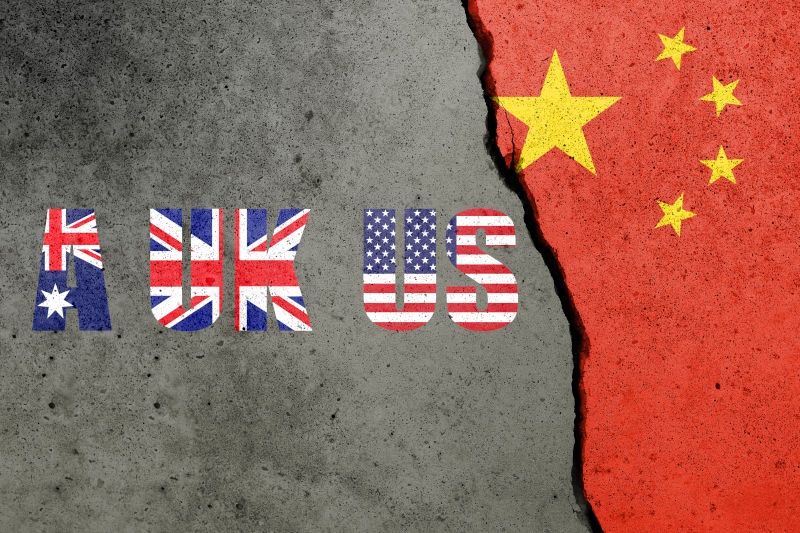Best not to know: how secrecy and ignorance feed AUKUS policy
May 3, 2023
Reports that Australia pays retired senior US military officials up to $7,500 a day for advice on AUKUS related defence projects, reveals a cultural cringe and taste for secrecy. Such practice is coupled to a common policy technique, of avoiding criticism by maintaining public ignorance.
On controversial issues, such as the development of US military preparations to wage war from Australian soil, ignorance can be a policy bliss. The public dont need to know. Best they dont know.
In response to revelations that large sums have been paid for the advice of alleged US military experts, the public are fed glib justification. Regarding a review of the Australian navys surface fleet, Defence Industry Minister Pat Conroy says that a US vice admiral would do a good job, and Defence Minister Richard Marles claims that high expenditure produces the best advice and the correct decisions.
If government Ministers feel no shame about secret payment of fees, such practice can be waved away as routine. No justification is necessary, no evaluation possible.
Defence based on alliance with US nuclear armed power has proceeded with limited public awareness, not least regarding the development of military bases in the Northern Territory. The overture for those developments occurred in former US President Obamas 2011 Defence Posture speech to the Australian parliament. Code for Australian cooperation with US planning for a military strategy to confront China, that speech foreshadowed the 2014 Force Posture Agreement, which gave America the right to wage war from Australia.
The costs and consequences of 2,500 US marines located in Darwin provokes little attention from journalists who see the Northern Territory as distant and seldom newsworthy. Jargonistic explanations for US military presence an Australian commander says marines are there for high end live fire exercises to respond effectively to contingencies that may arise can be ignored. The public would surely not be interested? They dont need to know.
It is also best the public know little about the nuclear capable B52 bombers based at RAAF Tindall, and remain unaware of a Darwin base for fuel and maintenance facilities for US aircraft and warships. These developments are said to contribute to national security, that easy assertion which Dr. Scott Burchill says is commonly misused by defence and intelligence agencies to avoid transparency and scrutiny of their behaviour. If security is at stake, trust intelligence. You dont need to know.
In the middle of the country, the significant military listening station at Pine Gap, may be perceived as a small communications centre in the middle of a desert, yet it occupies office space as large as the MCG. Within Pine Gap, the US military deploys ears and infra-red eyes to obtain intelligence about an enemys nuclear operations, including early warning of a possible missile launch; and in alliance with Australia, the US at war would depend on facilities at Pine Gap.
Although Australia is depicted as Americas trustworthy partner in conflict with China, the Australian government is not free to act on its own territory. Clinton Fernandes describes Australia as a Sub Imperial Power, for whom Pine Gap is a US base where less than 50% of 1000 employees are Australian, where members of the US Congress have freer access to the facility than Australian parliamentarians. Who should know?
The AUKUS policy that national security will depend on yet to be built but outrageously-expensive nuclear-powered submarines must also require the public to forget the $5 billion costs of the Morrison deceit involved in the cancelled French submarine project. It then requires acceptance that the AUKUS agreement will promote a free and open Indo-Pacific that is secure and stable, a policy claim no more plausible than the familiar notion that prisons contribute to rehabilitation.
The AUKUS alliance is justified by military forces needing an enemy, hence repetition that Chinas increasing military and financial power should be feared and controlled. In foreign policy, China is the obvious enemy. To think otherwise is not wise.
The United States military is a trusted ally, never to be feared, even if they possess 175 military bases in 70 different countries, whereas China is reported to have one foreign base, in Djbouti on the Horn of Africa.
To perceive the China threat as phony, requires insights that led former Prime Minister Malcolm Fraser to warn that Australia needs the US for its defence, but only needs defending because of the US.
In the current AUKUS debate, the build-up of the Northern Territory as a US base in readiness for war, is used to prove that China is a threat, a reasoning only to be swallowed if ignorance is maintained, if the public accept that the decisions of military, intelligence and political establishments must stay secret.
An ironical twist in controversy over AUKUS shows leading government ministers protecting their views by ignoring highly significant criticism of the kind evident in numerous articles in Pearls & Irritations. Such arguments might have dented the consciousness of the Prime Minister, the Foreign and Defence Minister but in common with policy to maintain public ignorance, Albanese, Wong and Marles seem to protect themselves by taking no notice of public criticism. Best we dont know, they might say.
In a democracy, limiting what the public could know about defence purchases and foreign alliances is a counter-productive way to promote freedom and security. For every citizen, the policy alternative is not to remain ignorant, but to insist it is best always to know.

